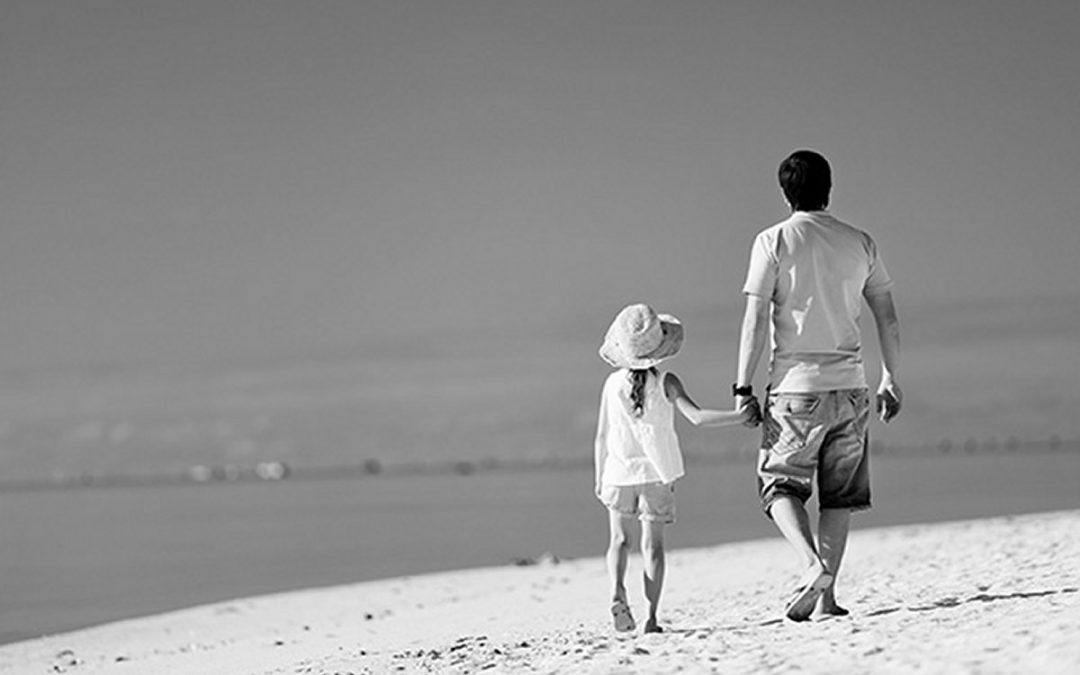
The Long Goodbye
Originally published at The ManifestStation
My father died today. Or at least he was my father once. I hadn’t seen him in almost 25 years.
People told me I’d regret it if I didn’t go and see him when he got sick. But I don’t regret it. They said I’d suffer if I left things undone, but it feels done. Our time together ended decades ago.
My father was not the primary abuser of my childhood, he was the enabler. I’m grateful to him for buying me a bicycle and teaching me to ride it, for encouraging my swimming and walking beside me as I swam my first 50 metre lap, for indulging my love of animals and the outdoors.
If he’d been married to someone else, he probably still would not have been a great father, but he would’ve been a father.
He didn’t want children, and when they found out they were both infertile, he was content to remain childless. My mother pushed for adoption, and he decided after my arrival that parenting wasn’t so bad after all.
My mother shifted the opposite way. If I’d been a puppy she would’ve returned me.
I felt loved by my father for the first ten years. He wanted another child but she was adamant there would be no more. When I reached puberty and her personality disorder went into overdrive, I saw the poison begin to impact him.
My teen years were the worst. My father could no longer afford to love or protect me. I understand that now – having children hadn’t been a priority and, faced with a choice between his wife and child, he chose her.
He once said to me ‘I don’t know what I’VE done’ with the emphasis on ‘I’ve’. It told me he was aware of the damage she’d done. And he was right, he had done nothing. That was the problem.
In order to justify the terrible choice he had to make, he became the more abusive one. Mocking and criticising, tearing me down, but unlike her he was never physically abusive.
When my biological father showed up and turned out to be a multimillionaire, they really sold me out. He and my mother enthusiastically told my biological father’s bewildered wife what a horrible person I was. Why? I asked.
My father was quite open about the fact that he felt they deserved financial compensation for raising me. Again I asked why. When my biological father doesn’t owe me anything, why would he owe you?
Because it wasn’t easy raising you, he said. Me, the one who didn’t smoke, drink, swear, have boyfriends, the nerd who got good grades, who was repeatedly told I was too quiet in class. Yes it was tough having me in the family, but for reasons that had little to do with me personally.
When I was 21, my partner at the time challenged them on their appalling behaviour towards me, and my father held up his fist. We left and my partner said the words I’d been waiting to hear my whole life – those people are crazy. All I’d ever heard prior to that were invalidating platitudes, leaving me to doubt my own reality. For a moment my feet touched solid ground.
We repeatedly did a dance that involved my mother shutting me out of the family for imagined crimes I never understood and my father would reconnect us months later. After the last time, when I finally had the courage to tell him she was lying, he called me names and hung up on me.
He never called again. I never called either. The truth was something he couldn’t afford. It would have cost him too much. But not knowing cost him too. And I couldn’t live with the lie.
The story became that I had told them to get out of my life. I can’t even end a phone call, much less a relationship with the people who raised me, but that’s how stories go. People believe what they want to believe. I made my peace with it.
There was almost contact once, when he was having heart surgery. I sent a card and then he asked my cousin for my number. I told her he could have it as long as he understood I would only talk to him, not my mother. He never called.
Many years later I sent him photos after I visited an old house overseas where we’d lived when I was very young. During my childhood we moved many times and, having a somewhat eidetic memory, I remember every address and phone number. I found the house and it was empty so I went inside and took photos.
I read that with dementia long-term memories are the last to go, so I thought he would get a kick out of knowing the old house was still there. No-one ever got back to me to tell me whether he saw the photos. I hope he did. I hope he remembered.
My biological father has long since disappeared from my life, and my adoptive parents had left me with the belief that I wasn’t enough to generate love and care in others. My life has reflected this.
Orphan Annie, no roots or place to belong, no surname that meant anything, no family and all that goes with it. No faith in relationships, especially with men.
There has been an underlying well of emotion that I sometimes visit, labelling it resentment, or self-pity, or bitterness. But its true name is grief.
Through my own determination and the support of some incredible friends and cousins, I learned that I’m worth much more than I’d been led to believe. I have a good life, a successful life, but with something fundamental missing.
I’ve skimmed across the surface of many social milestones. Marriage, having children, graduation, birthdays and other celebrations – they either never happened, or they happened without depth, meaning or connection. This is just another example.
Typically when a father dies, there is pain, acknowledgement, comfort, a funeral, recovery. My days will go on as though nothing happened. Someone told me they were sorry for my loss, and I wondered what they meant.
I felt more when David Bowie died two weeks earlier. I have felt tearful about Robin Williams. But I have no tears for my father. The Starman and the Captain were in my life longer. My father has been absent half a lifetime now. I can’t find the tears.
There is great loss in my life, but it is not the death of my father. I do wonder if his spirit visited me on his way to wherever he is now. Did he see the beautiful old house I bought and started renovating? Does he know that I’ve done ok? Still some desire remains for him to be proud of me.
I wish him a peaceful afterlife. Peace is a feeling I don’t think he’s had in a very long time. I wish it for both of us.


Recent Comments